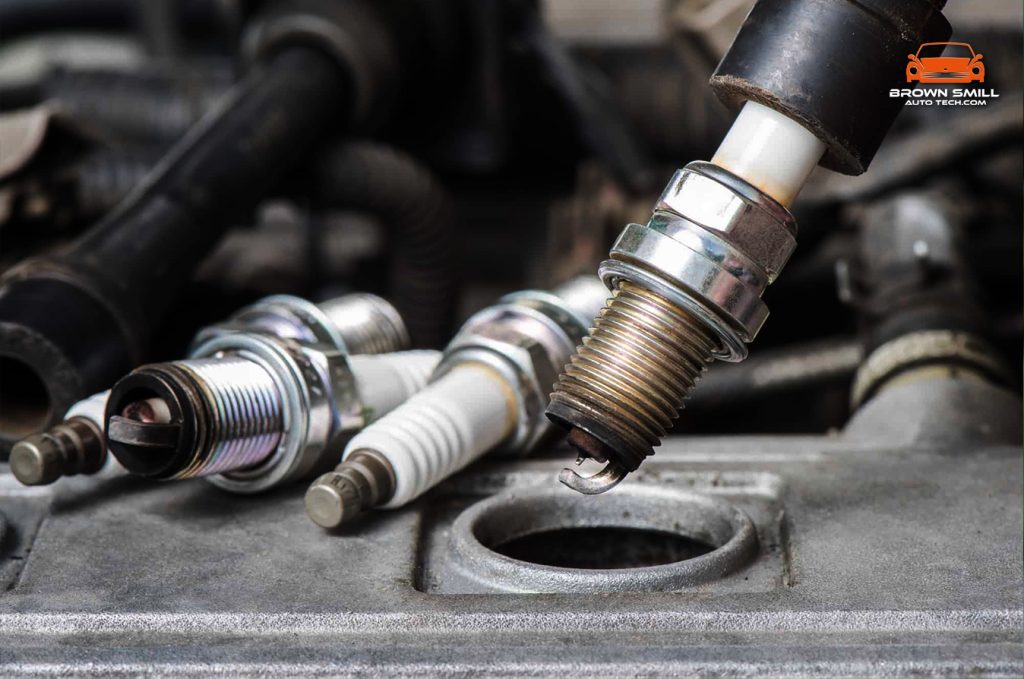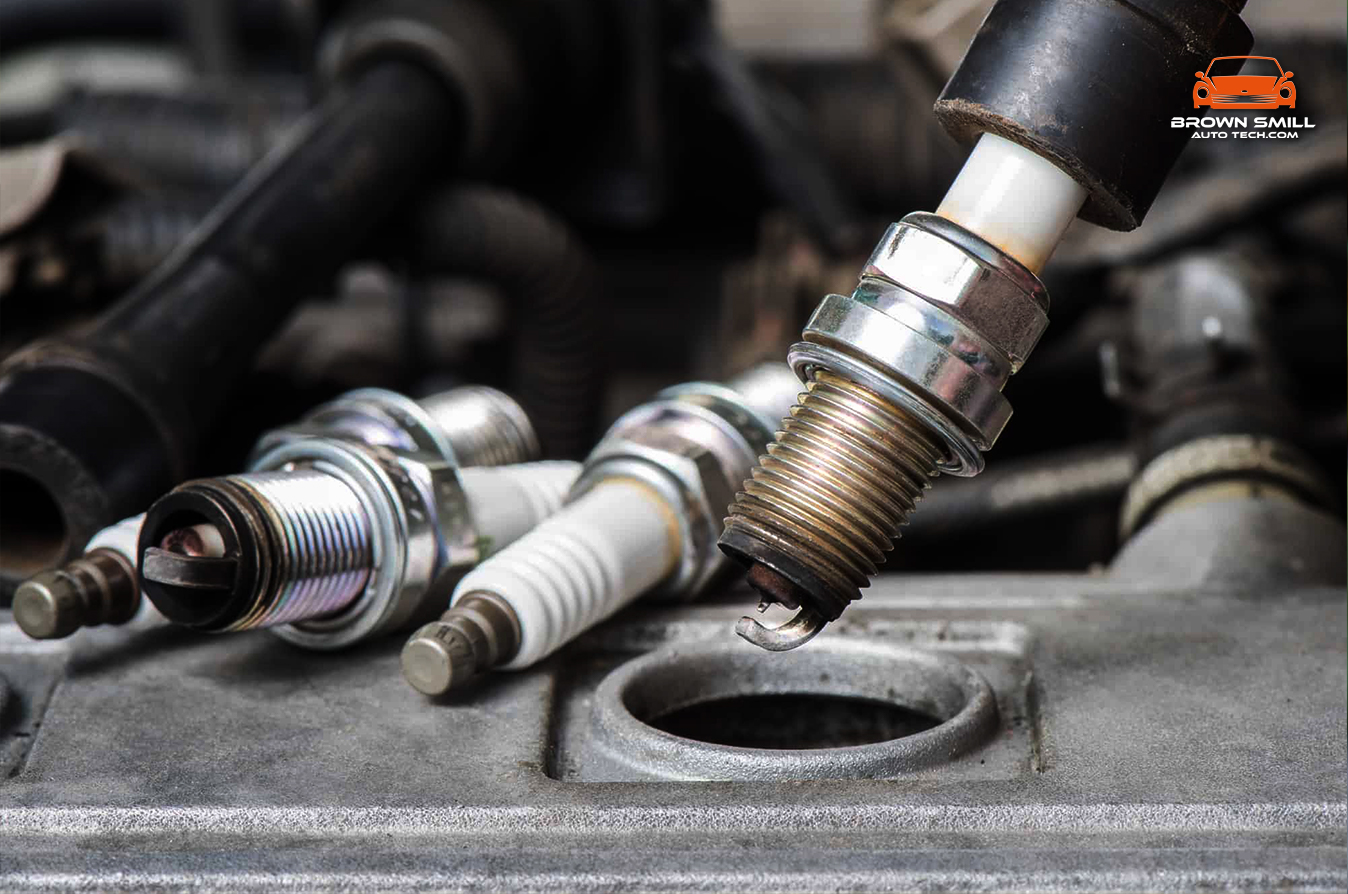If you find oil on your spark plugs, it could be indicative of a few different issues. It could mean that your engine is “leaking” oil, which is not good. It could also indicate that you have an issue with your piston rings or valves.
In either case, it’s best to take your car to a mechanic and have them diagnose the problem.
If you’ve ever taken a look at your spark plugs, you may have noticed that they sometimes have a bit of oil on them. But what does this mean? Essentially, oil on a spark plug means that your engine is leaking oil.
This can happen for a number of reasons, but the most common cause is simply worn-out seals and gaskets. As these components start to wear out, they’ll allow oil to seep into places it shouldn’t be, like the combustion chamber or around the spark plugs. In some cases, oil on the spark plugs can be caused by overfilling the engine with oil.
If you add too much oil to your car, it can end up getting into places it doesn’t belong and cause all sorts of problems. So be careful not to overfill! If you notice oil on your spark plugs, it’s important to have it checked out by a mechanic as soon as possible.
Left unchecked, an oily spark plug can lead to misfires and other engine performance issues. So if you see Oil On A Spark Plug – don’t ignore it!
How Do You Fix Oil on Spark Plugs?
If your spark plugs are fouled with oil, it’s likely due to an issue with the piston rings or valves. Both of these components seal the combustion chamber, keeping oil out of the spark plug wells. If they’re not sealing properly, oil can seep into the wells and foul the plugs.
The most common fix for this problem is to simply replace the piston rings or valves. In some cases, you may be able to clean them and reuse them. However, if there’s too much wear or damage, replacement is usually the best option.
Once you’ve replaced the faulty parts, make sure to keep an eye on your oil level and change it regularly to prevent this problem from happening again.
Can I Drive With Oil in My Spark Plugs?
No, you should not drive with oil in your spark plugs. Oil can cause engine misfires and damage to your spark plugs, leading to decreased performance and fuel economy. If you notice oil on your spark plugs, have them replaced as soon as possible.
Oil on Spark Plugs? Diagnose and Fix Spark Plug Tube Seals!

Is Oil on Spark Plugs Bad
If you’ve ever had your car’s oil changed, you may have noticed that the mechanic also replaced your spark plugs. Spark plugs are an essential part of a car’s engine, and they need to be in good working order for the engine to run properly. Over time, however, spark plugs can become fouled with oil and other deposits.
This can cause the plug to misfire, which can lead to engine problems.
So, is it bad if there’s oil on your spark plugs? It depends.
A little bit of oil on the plug itself isn’t necessarily a problem. However, if there’s a lot of oil on the plug or on the electrode (the part of the plug that makes contact with the spark), it could indicate an issue with your car’s engine. Oil can build up on the spark plug for several reasons:
-A leaky valve cover gasket: If your car’s valve cover gasket is leaking, oil can seep down into the area around the spark plug and deposit itself on the electrode. This is a common problem in older cars and one that should be fixed as soon as possible.
-Excessive blow-by: Blow-by is when combustion gases escape past the piston rings and into the crankcase (where the oil is stored).
These gases contain traces of oil, which can deposit themselves on nearby surfaces like the spark plug electrodes. Excessive blow-by is usually caused by worn piston rings or valves that need to be replaced.
If you notice oil on your spark plugs, it’s best to have them checked out by a mechanic as soon as possible so they can diagnose any underlying issues.
In most cases, replacing fouled or damaged plugs will solve the problem but if not addressed quickly enough, more serious engine damage could occur down the road.
Oil on Spark Plugs Symptoms
If your car is having trouble starting, it could be a sign that your spark plugs need to be replaced. But if you notice oil on your spark plugs, it’s a good indication that there’s a problem with your engine. Oil on spark plugs can be caused by a few different things.
The most common cause is worn or damaged piston rings. When these rings are damaged, they allow oil to seep past them and into the combustion chamber. This can cause all sorts of problems, including fouling the spark plugs.
Another possible cause of oil on the spark plugs is an intake manifold leak. If there’s a leak in the intake manifold, it can allow oil to enter the combustion chamber and mix with the fuel. This can also lead to engine misfires and damage to the catalytic converter.
If you notice any oil on your spark plugs, it’s important to have it checked out by a mechanic as soon as possible. It could be a sign of serious engine damage and will require repairs before you’ll be able to drive safely again.
How to Fix Oil on Spark Plugs
If your spark plugs are coated in oil, it’s likely that your engine is leaking oil. This can be a serious problem, as it can lead to engine damage. Luckily, there are a few things you can do to fix the issue.
First, you’ll need to identify the source of the leak. If you see oil on the outside of your engine, it’s likely that the seals or gaskets are worn and need to be replaced. If you see oil on the inside of your engine, it’s likely that the piston rings are worn and need to be replaced.
Once you’ve identified the source of the leak, you can begin to repair it. If you have a seal or gasket that needs to be replaced, you’ll first need to remove the old one. To do this, simply unscrew it from its mounting point.
Once it’s removed, clean off any old sealant or debris from both surfaces before applying new sealant and re-installing the seal or gasket. Make sure that everything is tightened securely before starting up your engine again. If your piston rings are worn, they will need to be replaced.
This is a more difficult repair, as you’ll need to disassemble part of your engine to access them. However, it’s still relatively easy to do if you have some basic mechanical knowledge. Simply remove the old rings and install new ones in their place.
Make sure that they’re properly seated before putting your engine back together and starting it up again.
Oil on Spark Plugs But No Smoke
If your car has oil on the spark plugs but no smoke, it’s likely due to a leaking valve cover gasket. The valve cover gasket is responsible for sealing the area between the cylinder head and the valve cover. Over time, the gasket can deteriorate and cause oil to leak onto the spark plugs.
This can lead to misfires and a loss of power. In some cases, it can also cause the engine to run rough. If you suspect that your car has a leaking valve cover gasket, it’s important to have it checked out by a mechanic as soon as possible.
Conclusion
If you notice oil on your spark plugs, it’s important to figure out what is causing the problem. There are a few possible causes of this issue, and each one needs to be addressed differently. Oil on the spark plugs could be caused by a leaking valve cover gasket, a blown head gasket, or piston rings that are worn out.
If you’re not sure what is causing the problem, it’s best to take your car to a mechanic so they can diagnose and fix the issue.




Leave a Reply